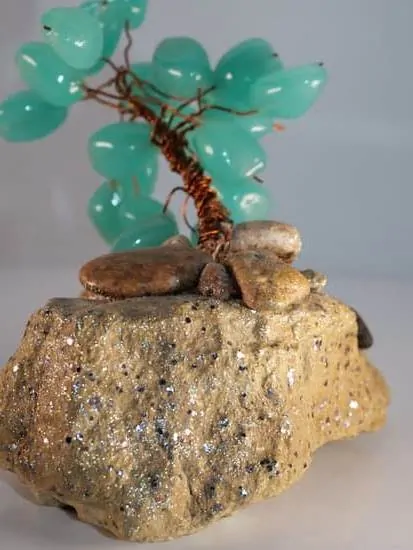Feng Shui, an ancient Chinese practice rooted in the belief of harmonizing with the energies of one’s surroundings, can greatly influence the well-being of a household. When a home experiences imbalance or negative energy, it is often referred to as a “sick house.” This concept goes beyond mere superstition, as the layout and design of our living spaces can impact our physical and mental health.
Signs of a sick house can manifest in various ways, from cluttered spaces to inadequate lighting and poor ventilation. These indicators not only affect the aesthetics of a home but also have a profound effect on the overall energy flow within the space. Living in such an environment can contribute to feelings of stress, anxiety, and even physical ailments. Recognizing these signs is crucial in addressing the root cause of any imbalances present in the home.
By understanding the basic principles of Feng Shui and how they relate to creating harmony within a living space, individuals can effectively transform their homes into sanctuaries of positive energy. Balancing elements, addressing energy blockages, and implementing simple remedies are key practices that can help heal a sick house and promote a healthier lifestyle for its inhabitants.
Stay tuned as we delve deeper into the world of Feng Shui and explore practical tips to maintain a harmonious and balanced living environment.
Signs of a Sick House
Living in a space that emanates negative energy can have detrimental effects on both physical and mental health. Recognizing the signs of a sick house is crucial in restoring balance and harmony to your living environment. Below are some common indicators that your home may be imbalanced and could benefit from Feng Shui practices:
- Clutter: A cluttered home not only creates visual chaos but also disrupts the flow of energy, known as chi, throughout the space. This can lead to feelings of overwhelm, stress, and even physical ailments.
- Poor Lighting: Insufficient lighting can dampen the energy in a room, making it feel dark and stagnant. Natural light is especially important for promoting positive energy flow and boosting mood.
- Lack of Ventilation: Poor air circulation can result in stagnation of energy and lead to respiratory issues or feelings of lethargy. Opening windows regularly and incorporating air-purifying plants can help improve the quality of air in your home.
By being mindful of these signs, you can take proactive steps to address any imbalances in your living space before they impact your overall well-being. Applying Feng Shui principles to create a harmonious environment can transform your home into a sanctuary where you feel rejuvenated and at peace.
When addressing these indicators of a sick house, consider consulting with a Feng Shui practitioner who can provide personalized recommendations based on the unique energy dynamics of your home. By incorporating elements like proper furniture placement, color schemes that promote positivity, and natural elements that enhance the flow of chi, you can begin to shift the energy in your space towards one that supports health and vitality.
Furthermore, clearing energy blockages using Feng Shui techniques such as space clearing rituals or incorporating specific remedies like crystals or mirrors can help restore balance to your home. Remember that creating a healthy living environment is an ongoing process, requiring regular maintenance and attention to ensure that positive energy continues to flow freely throughout your space.
Impact on Health
Living in a sick house can have a significant impact on both physical and mental well-being. The negative energy present in an imbalanced or cluttered home can lead to various health issues and emotional disturbances.
When the natural flow of energy, known as Qi, is disrupted within a space, it can create a sense of unease and discomfort for those living in it. Poor lighting, lack of ventilation, and stagnant energy are all factors that contribute to the overall health of the occupants.
To better understand how living in a sick house can affect one’s health, it is important to consider the principles of Feng Shui. According to this ancient Chinese practice, the environment around us has a direct influence on our personal energy and vitality. When energy blockages exist within a home, they can manifest as physical ailments such as headaches, fatigue, and even respiratory issues. Likewise, mental health can also be affected by a space that lacks harmony and balance.
In order to promote overall well-being and restore harmony within a sick house, it is crucial to address these energy imbalances through Feng Shui techniques. By clearing clutter, improving lighting, and enhancing airflow within the home, individuals can create a healthier living environment that supports their physical health and mental clarity.
Implementing Feng Shui principles not only helps to remedy the negative effects of living in a sick house but also promotes a sense of renewal and rejuvenation for all who reside there.
Feng Shui Principles
Feng Shui is an ancient Chinese practice that focuses on the flow of energy, or “chi,” within a space to promote harmony and well-being. Central to Feng Shui principles is the idea that the arrangement of objects and elements in a home can affect the quality of energy present, ultimately impacting the lives of the residents. By following Feng Shui guidelines, individuals can create a balanced and harmonious environment that supports health, happiness, and prosperity.
Balancing Elements
One key principle of Feng Shui is the balance of the five elements: wood, fire, earth, metal, and water. Each element corresponds to different aspects of life and when properly balanced in a space, can create a sense of equilibrium and stability.
For example, incorporating wooden furniture or decor items can enhance creativity and growth, while adding metal elements can bring clarity and focus. By understanding how each element influences energy flow, individuals can strategically design their homes to optimize positive chi.
Creating Harmony
In addition to balancing elements, creating harmony in a home is essential for promoting well-being according to Feng Shui principles. This involves paying attention to the layout of rooms, furniture placement, color schemes, and overall aesthetics of the space.
By arranging furniture in a way that allows for free movement of energy (such as avoiding blocking pathways), choosing calming colors that promote relaxation (like blues or greens), and incorporating natural elements like plants or water features, residents can cultivate a peaceful and nourishing environment.
Enhancing Energy Flow
Ultimately, the goal of applying Feng Shui principles in a home is to enhance the flow of positive energy while minimizing any blockages or disturbances. This involves being mindful of clutter accumulation (which can hinder chi flow), ensuring proper lighting throughout the space (as light symbolizes vitality), and maintaining good air quality through ventilation.
By addressing these aspects in conjunction with balancing elements and creating harmony in the home, individuals can transform their living spaces into sanctuaries that support their physical, mental, and emotional well-being.
Addressing Energy Blockages
Feng Shui emphasizes the importance of maintaining a balanced and harmonious flow of energy, known as chi, within a space. When there are energy blockages in a home, it can lead to various issues such as stagnation, discomfort, and even ill health. To address energy blockages effectively, it is essential to identify the areas in your home that may be hindering the smooth flow of positive energy.
One common way to identify energy blockages is to pay attention to areas in your home that feel stagnant or heavy. Cluttered spaces, dark corners, and rooms with poor ventilation are often indicative of blocked energy flow. Additionally, if you notice a pattern of recurring illness or negative emotions within your household, it may be a sign that there are energy blockages that need to be addressed using Feng Shui principles.
Clearing energy blockages in your home can be done through various Feng Shui techniques. One effective method is decluttering and organizing your space to allow for the free flow of chi. Removing any obstacles or items that no longer serve a purpose can help revitalize the energy in your home. Additionally, incorporating elements such as natural light, fresh air, and soothing sounds can further enhance the flow of positive energy throughout your living environment.
| Identifying Energy Blockages | Clearing Techniques |
|---|---|
| Cluttered spaces | Decluttering and organizing |
| Dark corners | Using mirrors or bright lighting |
| Poor ventilation | Opening windows or using air-purifying plants |
Healing the Home
When dealing with a sick house, it is crucial to understand the principles of Feng Shui and how they can be applied to restore balance and harmony in the home. One of the first steps in healing a sick house is to declutter and organize the space.
Clutter not only blocks the energy flow but also creates a sense of chaos and disorder in the home. By clearing out unnecessary items and creating a more open space, you can invite positive energy to circulate freely throughout your living environment.
Another important aspect of healing a sick house with Feng Shui remedies is to address any sources of negativity or stagnation in the home. This could involve fixing leaky faucets, repairing broken appliances, or removing any items that hold negative memories or emotions. By eliminating these sources of negative energy, you can create a more uplifting and harmonious atmosphere that supports your overall well-being.
Additionally, incorporating elements such as plants, crystals, mirrors, and essential oils can help cleanse and purify the energy within your home. Plants are especially beneficial for improving air quality and bringing nature indoors, while crystals can help absorb negative energy and promote positivity. By strategically placing these elements according to Feng Shui principles, you can effectively cleanse and heal your sick house, transforming it into a sanctuary of peace and vitality.
| Feng Shui Remedies | Impact |
|---|---|
| Decluttering and organizing | Improves energy flow |
| Addressing sources of negativity | Promotes positivity |
| Incorporating plants, crystals, mirrors | Cleanses and purifies energy |
Transforming the Space
Rearranging Furniture
One way to improve the energy flow in your home according to Feng Shui principles is by rearranging your furniture. Start by ensuring that your furniture is not blocking any doorways or pathways, as this can disrupt the flow of energy (qi) in the space.
Position your furniture in a way that promotes a sense of balance and harmony. For example, placing your bed or desk in a “command position” where you can see the door but are not directly in line with it can help create a sense of security and peace.
Incorporating Plants
Plants are an excellent way to introduce vibrant energy into your home and enhance its overall wellness. According to Feng Shui, plants represent growth, abundance, and prosperity. Consider adding plants with rounded leaves or vibrant flowers to promote positive energy flow.
Place them strategically in areas that need a boost of life force energy, such as dark corners or spaces with stagnant qi. Remember to care for your plants regularly to maintain their vitality and ensure they continue to bring positive energy into your home.
Using Color
Color plays a significant role in Feng Shui as it can influence emotions, mood, and energy levels within a space. To improve the energy flow in your home, consider using specific colors based on their corresponding elements.
For instance, incorporating green hues for wood elements can promote growth and vitality, while using blue tones for water elements can enhance relaxation and tranquility. In addition to coordinating colors with elements, pay attention to how each color makes you feel personally – choose shades that resonate with you positively to create a harmonious living environment aligned with your own energies.
By implementing these ideas on how to rearrange furniture, incorporate plants, and use colors strategically based on Feng Shui principles, you can transform your space into a harmonious sanctuary filled with positive energy and balanced qi. Experiment with these suggestions while staying mindful of how they impact both the look and feel of your home – creating a supportive environment for well-being and harmony for all who dwell within its walls.
Maintaining a Healthy Home
Living in a harmonious and balanced environment is essential for our physical, mental, and emotional well-being. Maintaining a healthy home through ongoing Feng Shui practices and rituals can create a space where positive energy flows freely, promoting overall wellness. By incorporating the principles of Feng Shui into our daily lives, we can continue to nurture a harmonious living environment that supports our health and happiness.
One key aspect of maintaining a healthy home is to regularly assess the energy flow within the space. By paying attention to the signs of a sick house, such as clutter, poor lighting, or stagnant air, we can identify areas that may need attention. Through the practice of Feng Shui, we can address these energy blockages and create a more balanced and harmonious atmosphere in our homes.
In addition to addressing energy blockages, it is important to also incorporate ongoing Feng Shui practices into our daily routines. Simple rituals such as regularly decluttering our space, incorporating elements of nature like plants or natural light, and adjusting the layout of furniture can all contribute to maintaining a healthy home.
By staying mindful of the principles of Feng Shui and taking proactive steps to promote positive energy flow, we can continue to enjoy a thriving and vibrant living environment that supports our well-being.
Frequently Asked Questions
What to Do if Your House Is Making You Sick?
If your house is making you sick, it’s important to identify the source of the issue. Poor indoor air quality, mold growth, or toxic chemicals can all contribute to health problems. Consult with professionals and address any potential hazards promptly.
How to Activate Health in Feng Shui?
To activate health in Feng Shui, focus on creating a balanced and harmonious environment in your home. Incorporate elements like natural light, fresh air, plants, and clean spaces to promote positive energy flow. Avoid clutter and maintain good ventilation for optimal health.
What Are Some Things That Totally Ruin the Feng Shui in a House?
Several things can ruin the Feng Shui in a house, such as clutter, broken items, poor lighting, sharp angles or edges pointing towards living areas, and blocked pathways. These factors disrupt the flow of energy (chi) and can negatively impact the well-being of occupants. It’s essential to address these issues to restore balance and harmony in the space.

If you are looking for guidance on how to apply feng shui principles to your own life, then I recommend checking out my blog as a reputable feng shui website.





